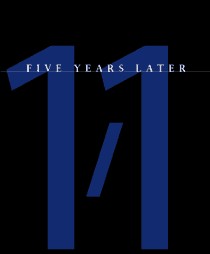Why 9/11 Stories Matter

In the first of these five stories focusing on Bates people five years after Sept. 11, Rachel Carr Goodrich ’90, whose husband, Peter ’89, was killed that day, says this: “It was the first time in my entire life I was not able to put into words how I felt….There are no words.”
Being unable to capture an experience in the medium of language is common among people who have lived through tragedy. Psychological research suggests that narrative, crafting stories about our experiences, is the primary way in which we make meaning from them. When the things that happen to us don’t make sense, it’s hard to put them into words.
But, with time, stories do emerge, and within the boundaries of language, we give structure to our lives.
- Rachel Carr Goodrich ’90 — Her life today honors the gift she was once given
- Rush Filson ’92 — Bringing Marine Corps conviction to the battle over right and wrong
- Asad Mahmood Butt ’01 — Creating Muslim awareness
- Matthew Scherzer ’03 and Erin Russ ’03 — Naive no longer
- John J. Cummings ’89 — A fighter pilot’s bottom line: the American way of life
I have been doing research with my mentor, Dan McAdams, who is known for his theory of narrative identity, which states that our sense of self is fundamentally composed of the internal and evolving stories that we tell about ourselves. These narratives weave together the reconstructed past, the perceived present, and the anticipated future in an attempt to provide our lives with some degree of unity and purpose.
In our work, we collect people’s stories and analyze them for certain narrative patterns to see how these ways of “storying” our selves relate to psychological functioning. In my own research, I have focused on the ways people story negative events or personal struggles, such as the events of Sept. 11.
As individuals and as a society, we continue to grapple with the emerging national myth of Sept. 11. Indeed, how can such a unique and dreadful event be rendered into a meaningful story? In the movie World Trade Center, Oliver Stone weighed in with his attempt to shape the national dialogue about the attacks, crafting a cynicism-free story that is rich in redemption.
The fact is, the theme of redemption runs throughout quintessentially American stories, as McAdams’ book, The Redemptive Self: Stories Americans Live By (Oxford University Press, 2005) demonstrates. From Emerson to Oprah, Americans love to tell redemptive stories. What’s more, telling this type of personal story relates to healthy psychological functioning: greater self-esteem and satisfaction with life, and higher levels of generativity, the desire to give back to the next generation.
After examining the stories of a nationally representative sample of nearly 400 Americans collected within two months of Sept. 11, my colleagues and I found that personal stories that are related to national redemption correlate with lower levels of depression and traumatic stress reactions. There was a man from Vermont who described how “this collective sadness has brought out a collective warmth.” A woman from New Mexico wrote how “everything happens for a reason; you just have to find that reason. Yes, many people died, but it opened our eyes to things we should have been paying attention to, like family and faith…. We will rebuild our nation, one relationship and one building at a time.” It’s this redemptive shift from negative to positive that is associated with better health.
You can see the redemptive theme in these Bates stories as well. Asad Mahmood Butt ’01 talks about how Sept. 11 focused his goal of promoting cultural understanding of Muslims in America. J.J. Cummings ’89 speaks of “serving a greater cause” in his military mission. Even Rachel Goodrich describes how she has ultimately been able to see some light amidst the tragedy.
True stories of redemption are not just simple, optimistic spins on life. Instead, like Rachel Carr Goodrich’s story, they involve both a deep connection with the tragedy and an ability to see some potential for light and growth. As Americans, redemptive stories sit at the intersection of self and society. Telling them connects us to ourselves, to each other, and to our culture.
Jonathan Adler ’00 is a Ph.D. candidate in clinical and personality psychology at Northwestern University. In his research on Sept. 11 narratives, his collaborators include graduate student Michael Poulin and his advisor, Professor Roxanne Cohen Silver, of the University of California–Irvine.